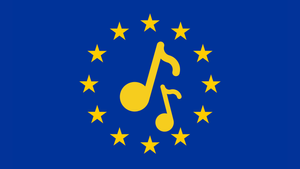ECSA, the pan-European organisation for songwriters and composers, has published a manifesto aimed at European Union lawmakers setting out the policy priorities of music creators, or ‘music authors’, across Europe.
There are nineteen recommendations in total, grouped around AI, streaming, contracts and EU support. In particular, ECSA wants greater clarity on how existing EU law is helping creators protect their copyrights in the context of AI, more efforts to restore the value of the song in streaming and new laws to stop buy-out contracts. It also calls for the creation of a Music Observatory in Europe.
Launching the manifesto, ECSA’s President Helienne Lindvall says that it is a way to “convey concrete recommendations for policy makers to enact in order to tackle” an assortment of challenges, “so that we can achieve an equitable, sustainable – even thriving – future for European music creators”.
This is necessary, she adds, because in 2024 composers and songwriters face numerous challenges, including “AI companies using their works without consent [and without] transparency, a broken music streaming landscape, and unfair contractual practices – making it harder and harder to survive even for music authors whose works are enjoyed far and wide”.
The manifesto raises some EU-specific issues in relation to AI. In particular, ECSA wants EU officials and lawmakers to check that the EU’s ‘opt out’ for AI training is working for creators.
As a result of the 2019 EU copyright directive, European law provides a text and data mining copyright exception that lets AI companies use copyright protected works in their training processes without getting explicit permission from copyright owners.
However, copyright owners can opt out of that exception by ‘reserving their rights’ - and many large corporate owners of copyrights, including the major-owned music publishers, have done so.
ECSA recommends that the EU should now “ensure that music authors can exercise informed consent by assessing the application of the text and data mining exception to generative AI and allowing them to reserve their rights in practice”.
In other words, ECSA wants clarity on how the data mining exception is being used by AI companies, and if the opt out process is working, for individual creators as well as big rightsholders.
Alongside this, ECSA says the EU needs to “make sure that the AI Act is implemented in an effective way that preserves authors’ rights and promotes the highest level of transparency for the input and the output of AI models”.
The EU AI Act, which was passed earlier this year, was welcomed by the music industry, mainly because of the transparency obligations it puts on AI companies. However, it has also faced criticism for being complex but with significant uncertainty and legislative gaps, with many issues either left to the discretion of the European Commission, or which will require additional legislation to implement.
ECSA also wants to see how the EU can implement “effective and enforceable mechanisms to remunerate music authors for AI-generated output to preserve the sustainability of their professions”. That particular request builds on a recent white paper from CIAM and the Fair Trade Music, which proposed a new remuneration right for creators on the outputs of generative AI models trained with their work.
On streaming, it’s no secret that songwriters believe that the current business model is unfair. With up to four times more streaming revenue going to recordings than to songs, ECSA says, among other things, that law-makers need to consider how to “share the streaming pie in an equitable and fair manner”. This could, says the manifesto, include “restoring the value of songs, the fundamental role of music authors, and rethinking the legal nature of a stream”.
When it comes to issues around contracts, one of the key challenges identified is ‘buy-out contracts’, something that music creators have been increasingly vocal about in recent years.
Under a buy-out contract, an entity commissioning new music will include contractual terms that mean it owns all the rights in that music, meaning that songwriters don’t receive additional royalties through the collective licensing system when their music is streamed, screened or broadcast.
On this issue, ESCA wants to see meaningful legal reform. Lawmakers, it says, should “introduce effective EU-wide legislative solutions to prevent buyout contracts and coercive publishing”. This would involve building on previous work by the European Parliament and Council, it adds.
More broadly, the EU should better involve itself in supporting the music community through a “clear and comprehensive” policy strategy for the music sector.
This, says ECSA, should include a dedicated music strand within the Creative Europe programme, and the creation of a Music Observatory, similar to the institution that already exists for the audio-visual sector, which would “independently collect data and assess the need for interventions at EU level”. With progress on these items, the EU could tackle gaps and enhance the diversity and competiveness of the European music sector.
ECSA acknowledges that, in recent years, EU institutions and national governments in some EU member states have adopted various recommendations and proposals that seek to address the challenges faced by songwriters and composers.
It is now time for “policymakers to turn these initiatives into reality” and to “provide a sustainable future for composers and songwriters” it argues.
By adopting ECSA’s manifesto proposals, the EU can “send a strong signal to future generations who aspire to write, compose and create”, while ensuring they are “fairly remunerated for their creations”, and “supporting the growth and sustainability of the entire music sector”.

